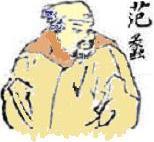|
||||||||||||||||||||||||||||||||||||||||
|
|
||||||||||||||||||||||||||||||||||||||||
|
Domino History The precise details of the invention and origin of dominoes are subject to much conjecture, but by whoever and wherever they were first developed they have since become one of the most hugely popular and versatile gaming implements ever devised by man, played by kings, presidents and commoners alike, all over the world. The invention of dominoes is most often attributed to the Chinese in the 12th-century. But some attribute their origins to Egypt and Asia from a much earlier time in history. Probably the earliest known domino set was found in the ancient Egyptian King Tutankhamen's tomb in Thebes. Tutankhamen reigned in Egypt's 18th dynasty, around 1355 BC, and the set discovered is now on display in an Egyptian museum in Cairo. The earliest known Chinese set of dominoes has been dated to 1120 AD. Of course, it is possible that dominoes, like ordinary dice, were developed independently by a number of different cultures all around the world at various different times in mankind's history. Chinese history relates a
number of different accounts of dominoes' invention, so are probably all
legend and none can be taken as a definitive and true version of their
origin. According to some Chinese accounts an heroic soldier called
Hung Ming (181 - 234 AD) invented them to help keep his soldiers
awake during night Dominoes didn't appear in the West until the early 18th-century when they were first noted in Italy. It has been suggested that they arrived in Italy via trading routes from the Far East, but no one knows this for sure. They subsequently spread all over Europe, then to England, and from there to the Americas. They arrived in the UK late in the 18th-century, possibly imported by French prisoners of war, and rapidly became a very popular game in traditional inns and drinking taverns at that time. The word "domino" is thought to be derived from the contrasting black spots on a white background which is reminiscent of a kind of black hood worn by Christian priests in Europe which was traditionally also called a "domino". The name is ultimately derived from the Latin word "dominus", which means "lord" or "master". Dominoes bear an unmistakeable relationship to standard ordinary spotted dice, and it is thought that whoever invented them took their inspiration from the spotted dice that certainly preceded them. The resemblance between dominoes and dice is in the unmistakeable spotted values found on both gaming implements with dominoes bearing all the possible combinations of two spotted dice. The numbering of clay tiles was used by the Babylonians in their business accounting, and they could possibly have been the forerunners of dominoes. It doesn't take much imagination to see dice used in games being crossed with accounting tiles used for business, to produce dominoes. Today, dominoes, in one form or another, are played all over the world but are most popular in South American countries and the Caribbean where they are considered to be the national game of many nations.
|
|||||||||||||||||||||||||||||||||||||||
|
Copyright © 2016 Stormdark I.P. and Media. All rights reserved. www.domino-play.com This site is for personal use only and content may not be copied or reproduced in any form for any purpose. Terms & Conditions Advertising |
||||||||||||||||||||||||||||||||||||||||

 watches when encamped before battle. Others state that
Keung T'ai Kung invented them in the 12th-century. A Chinese
historical account called the Chu sz Yam ("Investigations on the
Traditions of All Things") states they were invented by a nobleman who
then presented them to the Chinese Emperor Hui Tsung whose son
Kao Tsung (1127 - 1160 AD) subsequently had them circulated abroad.
None of these accounts can be considered a credible version of dominoes' origin.
watches when encamped before battle. Others state that
Keung T'ai Kung invented them in the 12th-century. A Chinese
historical account called the Chu sz Yam ("Investigations on the
Traditions of All Things") states they were invented by a nobleman who
then presented them to the Chinese Emperor Hui Tsung whose son
Kao Tsung (1127 - 1160 AD) subsequently had them circulated abroad.
None of these accounts can be considered a credible version of dominoes' origin.